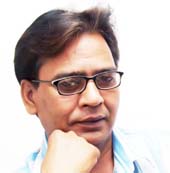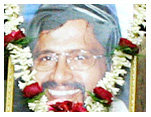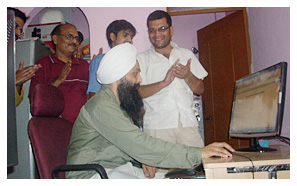: Corruption in media affects the health of democracy : The “paid news syndrome” in the media should be resisted as part of a larger struggle for democratic rights because corruption in the media directly affects the health of democracy. The struggle has to be waged in the context of media’s corporatisation, monopolistic trends and structural decline. These views emerged at a day-long seminar on “Abridging Freedom and Fairness of the Media: Combating Challenges,” organised by the Rajasthan Working Journalists’ Union, the People’s Union for Civil Liberties (PUCL) and the Human Rights Law Network here on Sunday.
Delivering the keynote address, P. Sainath, Rural Affairs Editor, The Hindu, said the paid news scandal, unearthed during the Assembly elections in Maharashtra last year, had exposed a full-fledged industry that was out to integrate journalism into it, blowing apart all values, principles and ethics of news writing. “For the corporate world, everything including the news is a commodity. With newspaper space purchased for publicity in the garb of news, politicians break the electoral expenditure limit without inviting action, and the media evade tax and develop a political clout,” Mr. Sainath said.
He regretted that even as statutory bodies, such as the Press Council of India (PCI) and the Election Commission, had initiated a probe into the scandal, the mainstream media was still silent on the issue. “This is [a matter of] shame. It exposes the corporate media which has blacked out the racket.” Even as the media had “structural compulsions to lie” because of heavy investments made by them in the market, the Election Commission had created a paid news and money power division and the Central Board of Direct Taxes had deputed a senior officer to look into the matter, he said. The Securities and Exchange Board of India (SEBI) is also closely monitoring the new trend.
“The choice is clear. Either we finish paid news, or paid news finishes us,” said the journalist, making a reference to the PCI “suppressing” a 72-page report of a two-member sub-committee on the subject identifying the perpetrators of the crime. Mr. Sainath said the PCI, as the moral guardian of journalism, was expected to take a bold stand on the issue. He said while the media’s independence was at stake in the country, the suicide of 2 lakh farmers in Maharashtra, Karnataka, Andhra Pradesh, Madhya Pradesh and Chhattisgarh between 1997 and 2008 had received very little coverage in the mainstream media. “Evidently, the media universe has changed,” he observed.
Painful struggle : Emphasising that a “very painful struggle” lies ahead, Mr. Sainath called for steps going beyond self-regulation, such as anti-monopoly legislation, mandatory SEBI guidelines and democratisation of media. He also sought citizens’ support to the progressive sections of media and creation of an increased public space in the media.
Speakers in other sessions highlighted instances of attempts to curb freedom of expression, the state and big business interests exploiting the media, extremist groups silencing the voice of criticism and curbs imposed by the media houses on the professional life of their staffers. The sessions were devoted to the subjects such as “Muzzling of Media by the State and the Mob,” “Perils of Being a Stringer,” “Media Corporatised and Compromised,” and “Contempt of Court and Disclosure of Sources.” Rajasthan High Court judge R.S. Chauhan, PUCL State president Prem Krishna Sharma, Indian Federation of Working Journalists vice-president Praveen Chandra Chhabra, High Court lawyer S.R. Bajwa, BBC’s Narain Barhat, Dainik Bhaskar’s Giriraj Agrawal and The Hindu’s Sunny Sebastian addressed the seminar. साभार : द हिंदू














